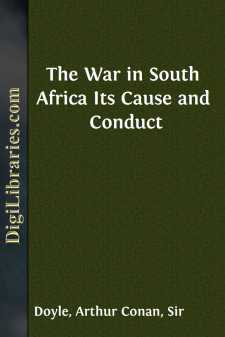History
- Africa 30
- Americas (North Central South West Indies) 50
- Ancient 68
- Asia 58
- Australia & New Zealand 8
- Canada 41
- Caribbean & West Indies 1
- Civilization 20
- Eastern Europe 12
- Europe 310
- Expeditions & Discoveries 60
- General 77
- Historical Geography 1
- Jewish 9
- Latin America 3
- Medieval 8
- Middle East 13
- Military
- Revolutionary 8
- Study & Teaching 5
- United States 353
- Western Europe 56
- World 13
Military Books
Sort by:
INTRODUCTORY WHAT IS THE SALVATION ARMY? If this question were put to the ordinary person of fashion or leisure, how would it be answered? In many cases thus: 'The Salvation Army is a body of people dressed up in a semi-military uniform, or those of them who are women, in unbecoming poke bonnets, who go about the streets making a noise in the name of God and frightening horses with brass bands. It...
more...
ORIGIN OF THE PURPOSE OF THE TRIP N the Autumn and Winter of 1915, a body of distinguished and representative Frenchmen visited the United States, their object being to make an investigation of conditions here, having in mind the great need of France in war munitions, the steel in ingot and bar form very much needed for the manufacture of war materials, and the numerous other commodities necessary for...
more...
It is impossible to appreciate the South African problem and the causes which have led up to the present war between the British Empire and the Boer republics without some knowledge, however superficial, of the past history of South Africa. To tell the tale one must go back to the beginning, for there has been complete continuity of history in South Africa, and every stage has depended upon that which...
more...
A DESTROYER IN ACTIVE SERVICE BY AN AMERICAN OFFICERApril7.War accepted with equanimity.Life on a destroyer is simple.Well, I must confess that, even after war has been declared, the skies haven't fallen and oysters taste just the same. I never would have dreamed that so big a step would be accepted with so much equanimity. It is due to two causes, I think. First, because we have trembled on the...
more...
by:
F. L. Morrison
FROM MOBILISATION TO THE EAST. The period from the date of mobilisation to the date on which we began our active service experiences we propose to pass over quickly, as the events which happened then seem now of small interest to those coming later. With orders prepared carefully in peace time, mobilisation went smoothly. The Normal School, Glasgow, became a barracks and a place for the busy public of...
more...
by:
Edward Carpenter
I INTRODUCTORY The following Studies and Notes, made during the earlier period of the present war and now collected together for publication, do notвÐâas will be evident to the readerвÐâpretend to any sort of completeness in their embrace of the subject, or finality in its presentation. Rather they are scattered thoughts suggested by the large and tangled drama which we are...
more...
CHAPTER I. GIBBON'S EARLY LIFE UP TO THE TIME OF HIS LEAVING OXFORD. Edward Gibbon was born at Putney, near London, on 27th April in the year 1737. After the reformation of the calendar his birthday became the 8th of May. He was the eldest of a family of seven children; but his five brothers and only sister all died in early infancy, and he could remember in after life his sister alone, whom he...
more...
by:
Jacob Abbott
Chapter I. B.C. 280-249Hannibal.Rome and Carthage.Hannibal was a Carthaginian general. He acquired his great distinction as a warrior by his desperate contests with the Romans. Rome and Carthage grew up together on opposite sides of the Mediterranean Sea. For about a hundred years they waged against each other most dreadful wars. There were three of these wars. Rome was successful in the end, and...
more...
I. THE ISONZO FRONT1My first impressions of the Italian war centre upon Udine. So far I had had only a visit to Soissons on an exceptionally quiet day and the sound of a Zeppelin one night in Essex for all my experience of actual warfare. But my bedroom at the British mission in Udine roused perhaps extravagant expectations. There were holes in the plaster ceiling and wall, betraying splintered laths,...
more...
by:
Kelly Miller
THE NEGRO'S PART IN THE WAR By Professor Kelly Miller, the Well-Known Thinker and Writer. This treatise will set forth the black man's part in the world's war with the logical sequence of facts and the brilliant power of statement for which the author is famous. The mere announcement that the author of "Race Adjustment," "Out of the House of Bondage," and "The...
more...











